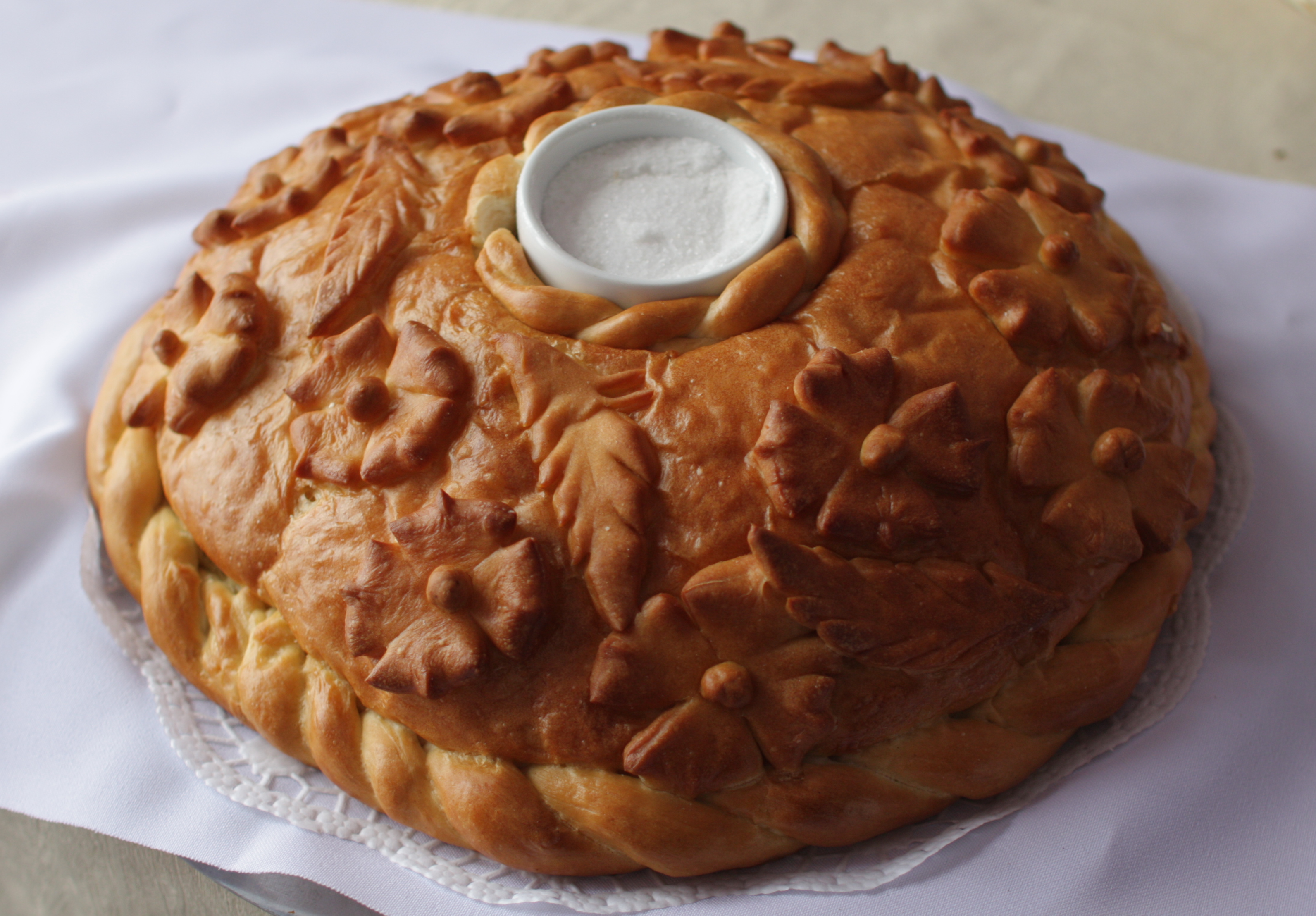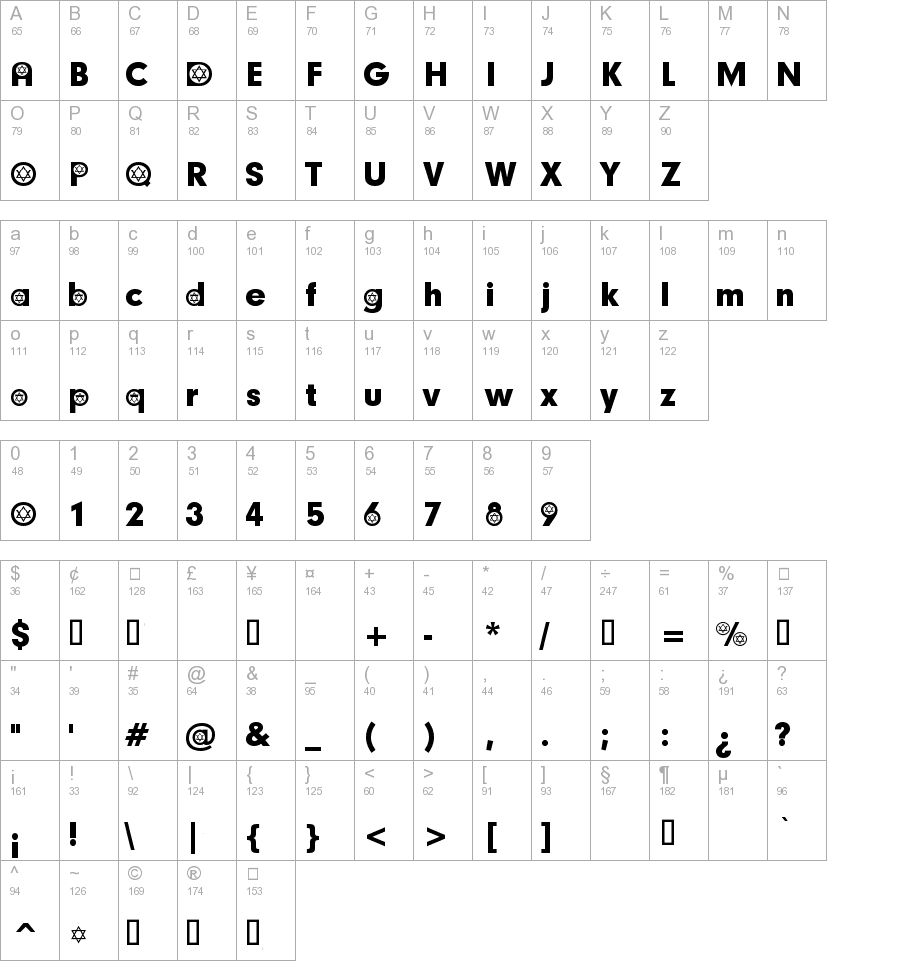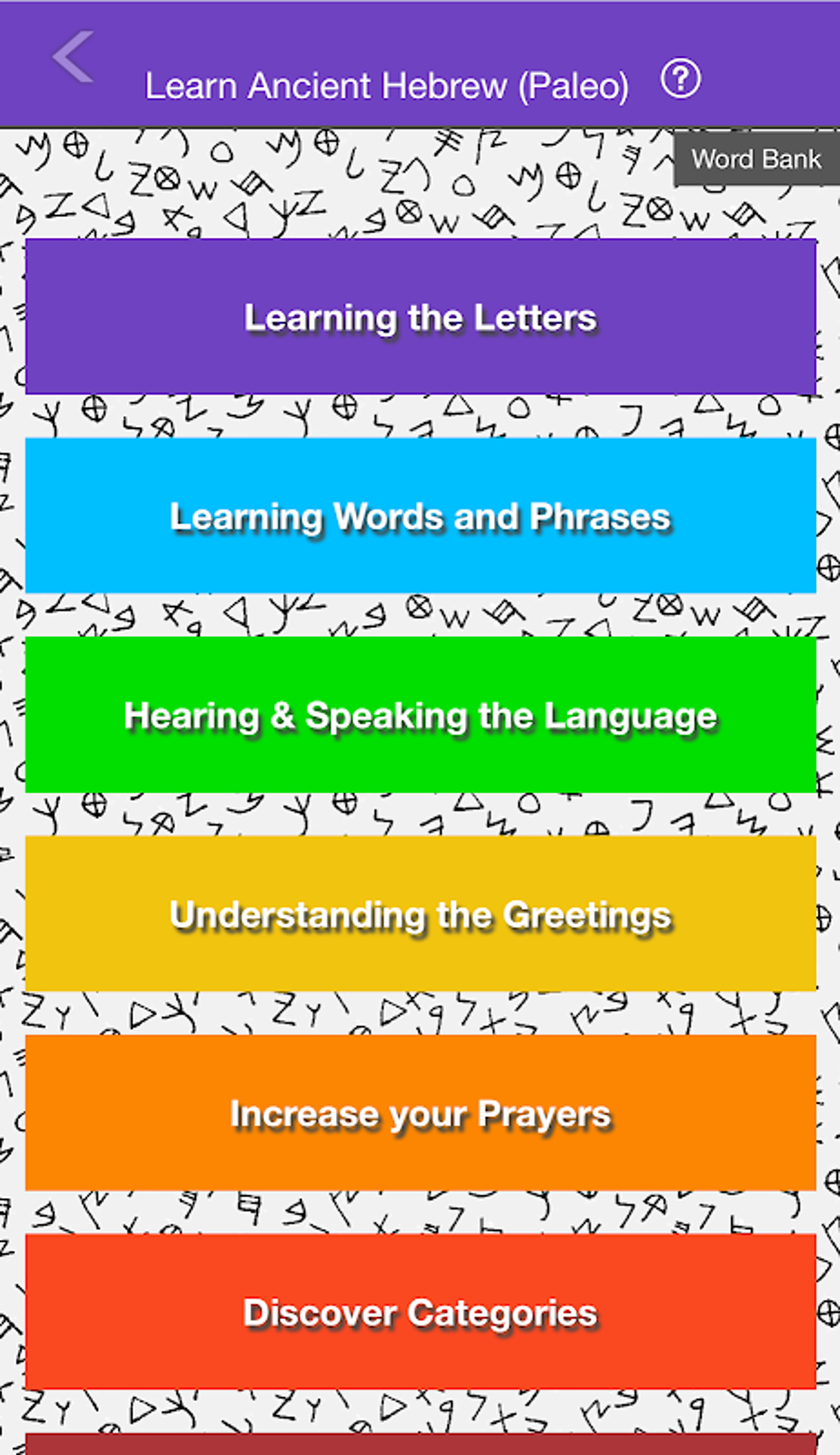
Ancient Symbols and Their Meanings • Secret Energy Ancient symbols
Additionally, many have the custom to dip the bread into the salt three times. One reason for this is that the gematria (numerical value) of lechem is 78. We dip the bread three times, dividing the energy of 78 into 3, which equals 26, the numerical value of G‑d 's name (the Tetragrammaton). This reminds us of the verse 8 "Man does not.

Pesach Seder, Photo On Mug, Chili Bowl, Porcelain Bowl, Salt And Water
· Kosher salt is raked during processing. This gives the grains of kosher salt a structure that looks like stacked cubes. The larger, more open surface area means that it can absorb more moisture than a regular, single cube-like grain of salt. · Grains of kosher salt take up more space than an equal weight of regular table salt.

Sugar salt HEBREW LETTER stock illustration. Illustration of colorful
The Hebrew word for salt, melach, is thought to be related to the word for king, melech. This association of salt with royalty and value can be seen in various passages throughout the Old Testament. For example, in 2 Chronicles 13:5, God is referred to as the "Lord God of Israel, who gave a permanent covenant of salt to David king of Israel

Sugar salt HEBREW LETTER stock illustration. Illustration of hair
A kabbalistic connection between salt and covenant can also be found in Rabbenu Bahya (on Lev. 2:13), who conceptualizes salt as the product of sea water and the heat of the sun. Therefore, "In the essence of salt is the power of water and the power of fire, which signify two of the [Divine] attributes on which the world is established: the.

Five Hebrew Love Songs Salt Lake Choral Artists YouTube
What this text really means is, "from behind the Sh'chinah " (the immanent Presence of God). Thus when "his wife looked back from behind him," she turned her face to the destroying angel, and, as a result, she became a pillar of salt. For as long as the destroying angel does not see the face of a person, he does not harm that individual; but as.

Sugar salt HEBREW LETTER stock illustration. Illustration of hair
Salt was an important part of ancient Hebrew religious sacrifice. Also, eating salt together, was and still is a sign of friendship in some regions in the Mediterranean.

Scripture Art, Bible Verses, Torah Quotes, Shabbat Shalom Images
Salt is considered as the most necessary condiment, and therefore the Rabbis likened the Torah to it; for as the world could not do without salt, neither could it do without the Torah (Soferim xv. 8). A meal without salt is considered no meal (Ber. 44a). Still, salt is one of the three things which must not be used in excess ( ib. 55a).

FileRussian bread and salt.jpg Wikimedia Commons
KJV: of the plain, [even] the salt sea, INT: of the Arabah Sea the Salt the foot of the slopes. Deuteronomy 29:23. HEB: גָּפְרִ֣ית וָמֶלַח֮ שְׂרֵפָ֣ה כָל־. NAS: is brimstone and salt, a burning. KJV: thereof [is] brimstone, and salt, [and] burning, INT: is brimstone and salt A burning All. Joshua 3:16.

Biblical Hebrew for Children Level One DVD Biblical Hebrew, Hebrew
Bread and salt are regarded as a natural pair because the Hebrew words lechem (bread) and malach (salt) are spelled with same letters. By bringing bread and salt to a new home, we make it possible for the people who have just moved in to sustain themselves. Bread is regarded as the most basic foodstuff.

Hebrew Participants Regular truetype font
A very old word, quite common in the Bible and in other Semitic languages, including brit melaH "fellowship over a meal"* (Numbers 18:19); a sacred offering to God (Leviticus 2:13); and the.

מלח salt Hebrew conjugation tables
A primitive root; properly, to rub to pieces or pulverize; intransitively, to disappear as dust; also (as denominative from melach) to salt whether internally (to season with salt) or externally (to rub with salt) -- X at all, salt, season, temper together, vanish away. see HEBREW melach.

IDIS, The Hebrew AlephBet in Kosher Salt on Behance
The Hebrew word for salt, melach, is numerically equivalent to 78, which is 3 x 26 [3 x the divine name Havayah, which equals 26]. Similarly, the priestly blessing contains the name Havayah three times: "May Havayah bless you…May Havayah shine His countenance…May Havayah raise his countenance…." These blessings keep the world in existence.

Zadok Ancient Hebrew Language APK for Android Download
In Hebrew, the word for salt is: "melach" This is made from the Hebrew letters mem, lamed and chet. Hebrew is a consonantal language so words can be said without the vowels. Modern Hebrew, for example, is written without the vowels. Biblical Hebrew, thankfully, includes the vowels as tiny dots and dashes around the consonants.

Saw these symbols on my grandad‘s salt shaker. The „text“ in the top
Gesenius' Hebrew and Chaldee Definition. מֶלַח (Arab. مِلْحُ) m. salt, יָםֽ הַמֶּלַח the salt sea, i.e. the Dead Sea, or lacus asphaltites, the water of which is impregnated and almost saturated with salt, Genesis 14:3; Numbers 34:12; Deuteronomy 3:17. גֵּי מֶלַח the valley of salt, see גַּי. בְּרִית.

Silver Salt Shaker Hebrew Lettering Unique salt shaker Etsy
10 Answers. In the Hebrew Bible, salt is both a disinfectant and preservative, but if the salt loses its integrity (or its "flavor" to preserve) the result is disintegration. When Jesus talked about salt "trampled under feet," he was referring to this latter connotation of disintegration found in the Hebrew Bible.

Hebrew הַטַּבָּח אֲשֶׁר אֵין לוֹ מֶלַח The Cook Who Had No Salt
The act of sprinkling salt on challah when making hamotzi (the blessing over bread) combines the literal and figurative functions of this natural resource. Two verses before Leviticus 2:13 state that "you shall not omit from your meal offering the salt of your covenant with God"; the passage opens by prohibiting the burning of honey and.